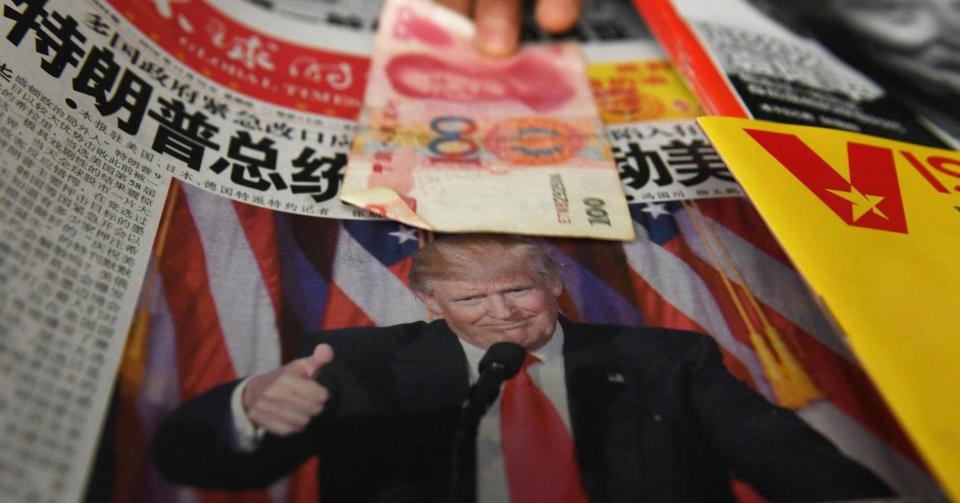China quietly made some New Year currency moves that won't make Donald Trump happy

Call it a New Year's greeting from the Chinese government to the incoming administration of Donald Trump .
As the president-elect rang in 2017 entertaining guests at his opulent Mar-a-Lago estate, China quietly ushered in a series of measures aimed at better controlling the value of its local currency, the yuan.
Throughout his campaign, Trump accused China of "manipulating" the yuan to make Chinese exports more competitive in global markets. China's latest announcement will likely add fuel to that debate.
Unlike countries that mostly let markets determine the value of their currencies, Beijing tries to peg the yuan to a basket of other currencies. Starting Jan. 1, the Chinese State Administration of Foreign Exchange will use a new, broader basket of global currencies to benchmark the yuan's value. The change will have the effect of reducing the impact of the U.S. dollar on the official valuation.
"This is unambiguously bad news for the United States," High Frequency Economics Chief Economist Carl Weinberg said in a note to clients Tuesday. "China has put a new chip on the table to counter trade adventurism by the Trump administration."
Some analysts have downplayed the change, noting that it will have little immediate effect on market-based exchange rates.
But Weinberg argues that the new weightings will put added downward pressure on the yuan relative to the dollar, while making China's currency more attractive to investors and trade partners using currencies other than dollars.
"This is not the turn of events the Trump administration is hoping for," he wrote.
A CNBC email to the Trump transition team was not immediately returned.
Trump has repeatedly cited the falling value of the yuan as evidence that China continues to manipulate its currency in order to maintain an unfair trade advantage against U.S. exporters. Countries with weaker currencies have advantages when it comes to exports, because products priced in a cheap currency are more affordable. Trump has pledged to retaliate with punitive tariffs on Chinese goods.
While China has sought to dampen the value of its currency in the past, the People's Bank of China has more recently been scrambling to support the yuan . Beijing is deeply concerned that the weakening yuan is encouraging Chinese to shift their wealth out of the country into stronger currencies or other, more stable holdings. China needs a lot of capital in the country in order to continue to fund its growth, which is very heavily reliant on borrowing .
Between August 2015 and August 2016, China sold more than $570 billion in its stockpile of foreign currency to slow the yuan's deprecation, according to Treasury estimates
But despite the intervention, the yuan last year lost roughly 7 percent of its value relative the dollar, to the lowest level in eight years.
Most analysts say the yuan's slide is less a result of China's efforts to weaken it than it is to strong gains by the dollar, which has risen value against most major currencies over the last year.
That strength owes much to the recent policy shift by the U.S. Federal Reserve to begin raising interest rates after nearly a decade of flooding the financial system with cheap money.
As central banks in Europe and Japan maintain a policy of negative interest rates, higher U.S. rates — while still historically low — have attracted a flood of investment to dollar-denominated securities. That has the effect of boosting the currency's value.
China's central bankers are struggling with the opposite problem. A weak yuan has sparked a massive capital flight, some $700 billion worth of capital fled the country in 2015, according to the Institute of International Finance.
Beginning Jan. 1, China imposed tighter oversight of foreign currency purchases and tougher penalties for illegal money outflows.
The annual purchase of foreign currencies will remain capped at $50,000. Individual Chinese investors who want to buy foreign currencies at banks will have to fill out an application and explain the purpose of the transaction.

 Yahoo Finanzen
Yahoo Finanzen 
